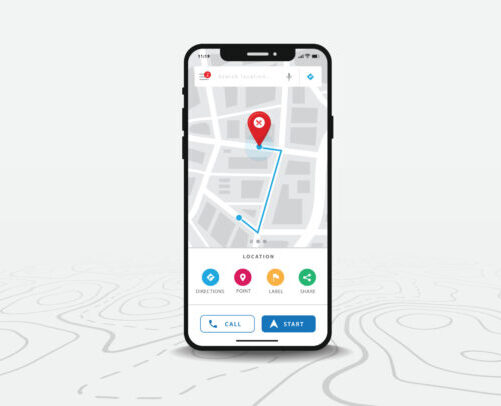Having a store locator on your website is widely accepted as a common-sense practice. After all, you want to make it easy for your customers to find you. This works whether you are a business with brick and mortar locations (such as a department or hardware store) or a brand that is stocked at retail outlets. Consumers increasingly use the web to find the location of the store they want to visit or of the specific product they want to buy before they leave the house, or while they’re out (via mobile devices), so they can home directly in on what they’re looking for. A good store locator can help turn a web visit into an in-person transaction, so it isn’t a feature to neglect.
However, if you’re only using your store locator to give your customers information about you, then you’re missing half of the story—the most important half! A store locator can also give you valuable information about your customer base that you can use to better target your marketing and make it more effective.
How does it work? If you have Google Analytics on your website, these visits to your store locator can be gathering valuable information for you at the same time they’re letting your customers know where you can be found. Specifically, you can find out what products people have looked for, and what area they are searching in. Understanding who your customers are and what they’re looking for is what market research is all about, and leveraging the data your site gathers from these visits is a powerful way to gain useful insight about your audience.
The type of data you gather from store locator visits on your site can point you to where your most likely customers are and what they want. This, in turn, lets you direct and refine your advertising efforts to do the most good for your business. Some possibilities:
1. Tie your locations into the creative side of your marketing
If you know that you’re getting lots of hits on your store locator from specific markets, don’t wait for potential customers to ask. Google Ads lets you target ads to geographic locations—use the information you’ve gotten from site visits to incorporate store-specific location into text and banner ads keyed to run in the areas you’ve chosen.
2. Remarketing
You can target ads to website visitors to help keep your products at the top of their mind by reminding them of what they were searching for. Example: “Still need to pick up air filters at Ace Hardware?” You can even go a step further by incorporating location information as well: “Your nearest location is on Sepulveda Boulevard.”
3. Debut a new product line
Those store locator visitors are already interested in what you have to offer, so who better to keep informed when you have something new to show them. Use the data you’ve gathered from store locator visits to let your prospective customers know when you have a new product. You can even take this type of advertising to the next level, by targeting just the subset of people who came to your website to look for a related product. For example, if flavored sodas are one item you sell, who do you think will be most interested in hearing about a new flavor? That’s right, people who came to your site looking for the sodas you already sell.
4. Run A/B testing
A/B testing is an important part of figuring out your most effective marketing approach. A well-designed test program will help you understand which elements of your advertising, from content to font choice, help drive the consumer behavior you want to see—better engagement and greater sales. Starting out with the data from store locator interactions can help you refine your test groups and make the information you gather from this process even more informative.
Most businesses don’t have unlimited money to spend on marketing, which is why you want to make every dollar count. The data your website gathers on store locator visits is just one example of information that can be leveraged to drive sales more efficiently, if you know how to use it. Connection Marketing can help you craft a comprehensive strategy to get the most out of every asset at your disposal, tying your marketing efforts together into a cohesive whole. If you’d like to know more about how Connection Marketing can jump-start your marketing plan, contact us at info@connectionmarketing.net to schedule a free consultation.





